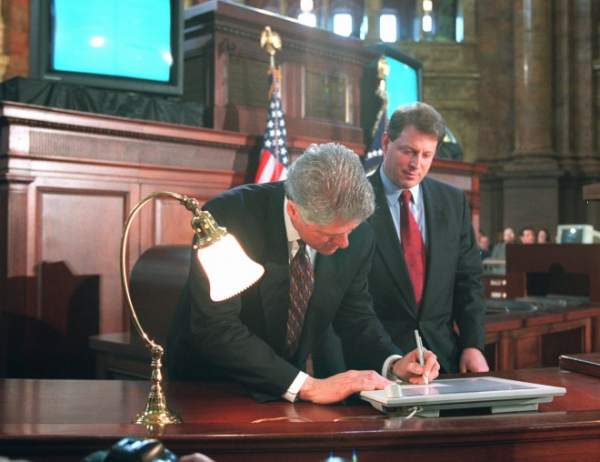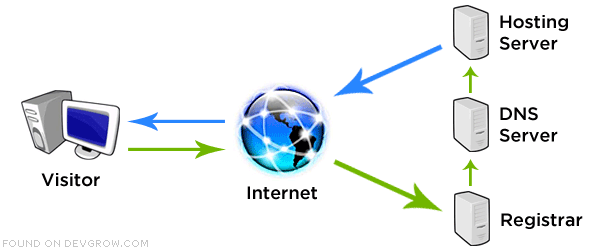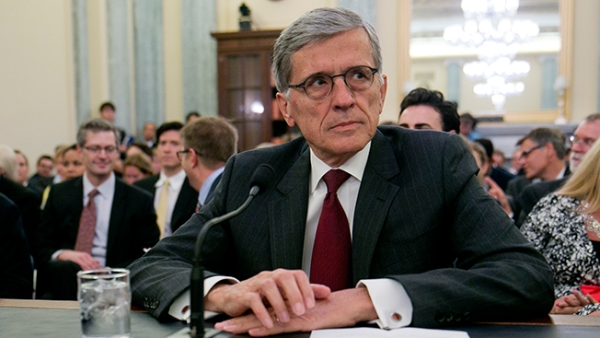You’ve likely heard something about net neutrality at some point in the past few weeks; if not, it is, simply, the concept that all Internet traffic should be treated equally, that no one entity, however large or small, should have more or less access to data transfer than another. This is so intrinsic to the way we expect the Internet to work that it’s difficult to imagine the opposite, an Internet in which data transfer speed – Internet speed – is bought into instead of de facto had. Imagine that a favorite site, ran by an entity of lesser, say, economic stature, is many times slower, takes many more seconds just to load than a site ran by an economically superior entity. Imagine that your favorite political blog, written by an intelligent, responsible person from their desk, has to match what Huffington Post pays to have their data load just as quickly. Of course, the favorite blogger could never compete with this buy-in “fast lane”, as it’s been called. This, a version of non-neutral net, is what the FCC’s new regulations would institute, and it’s going to dramatically change the way the Internet works. As Lawrence Lessig and Robert W. McChesney, co-founders of the media reform group Free Press, describe in their 2006 (yup, this has been around for a while) Washington Post article “No Tolls on the Internet”:
Without net neutrality, the Internet would start to look like cable TV. A handful of massive companies would control access and distribution of content, deciding what you get to see and how much it costs. Major industries such as health care, finance, retailing and gambling would face huge tariffs for fast, secure Internet use—all subject to discriminatory and exclusive deal making with telephone and cable giants.[1]
The “openness” of the Internet, its extreme diversity (“if it exists, it’s on the Internet”), and the entrepreneurial notion that anyone can make some new site or service and succeed with it, are at stake.

[Image from: flickr user Matthew Rutledge]
There’s been a long struggle in America to define communications systems legally. One of the first pieces of legislation on the subject, the “Pacific Telegraph Act of 1860”, subtitled, “An Act to Facilitate Communication between the Atlantic and Pacific States by Electric Telegraph”, reads, “messages received from any individual, company, or corporation, or from any telegraph lines connecting with this line at either of its termini, shall be impartially transmitted in the order of their reception, excepting that the dispatches of the government shall have priority.”[2] It set today’s controversial precedent for neutrality in communications networks. Telegraph lines are of course far less complicated than data networks or even phone networks, and indeed, telecommunication legislation became steadily more complicated as systems progressed. In 1934, Franklin Roosevelt created the FCC in the Communications Act of 1934, centralizing communications regulations; under Title II of this Act (remember this), telecommunication companies were defined as “common carriers”, or “a person or company that transports goods or people for any person or company and that is responsible for any possible loss of the goods during transport” and are subject to FCC regulation[3]. This permitted the FCC to hold phone companies, for example, accountable to the rules of the title, which stipulated fair, just, non-discriminatory service delivery.[4] In the Telecommunications Act of 1996, this title was heavily amended, its emphasis switched, in an effort, as the Act states, “to promote competition and reduce regulation in order to secure lower prices and higher quality services for American telecommunications consumers”[5] This act did promote competition – it is partially responsible for the boom of Internet companies, the dot-com bubble – but perhaps too well. By blasting open the market, companies were allowed, in lieu of regulation, to mingle their products’ media types, creating communications behemoths like Comcast with voice, cable, and Internet service. It became impossible to regulate just one of the company’s media types without regulating all at the same time, problematic because the Internet, not explicitly defined as a “common carrier” in the Telecommunications Act, was and is not subject to identical FCC non-discrimination regulation[6]. Tim Wu, a media law professor at Columbia, in his paper “Network Neutrality, Broadband Discrimination”[7] (incidentially, he coined the term “network neutrality”), read the tea leaves on this. Seeing how cable companies had stratified their cable service, how these cable companies had jumped on the highly-profitable Internet, and understanding that the Telecommunications Act of 1996 left the Internet’s legal status open for interpretation, he predicted that there would be attempts to also stratify the Internet, or make it non-neutral. The FCC, in 2010, attempted to codify net neutrality; Verizon challenged the order, citing the 1996 Act, and won. The FCC re-posed a modified order this April, which allows for the situation described in the first paragraph. This is where we are now.

[President Clinton signs the Telecommunications Act of 1996 with an electric pen; VP Al Gore looks on. Image from wired.com]
To go back: non-neutral Internet, or “closed Internet,” would specifically constrain services like BitTorrent, blog-posting, as mentioned, and even something like video-posting, which seems so freely used now in advertisements and news sites we hardly think to remember it requires servicing. This is intentional: freedom-to-make without bandwidth-funneling is a freedom built into the basic design of the Internet, which follows what is called the “end-to-end principle”. This design entails that all the communications operations in a system, in this case the Internet, should be located at the “end-points” of the system, or where the resources (bandwidth) are controlled. The “end points” in a typical provider-user setup are the user’s computer, and the company’s computers that provide the Internet. In this system, the stuff in between is the network and it simply transports data, like railroad tracks carry trains, as prescribed by the provider, and the user. This network is called “dumb” because there is no protocol (operations) built-in to it – it does nothing to the data transferred along it. Interference by any of the end-point parties, which are called “smart” and do the operating on the data, is traditionally not allowed – it makes the system less reliable. This is behind the beauty of the Internet. On a very mechanical level, it is actually optimal to have a computer deal with the errors that will inevitably occur along a network, if there are not too many, because it is at the computer where the success of the communication is assessed.[8] Put another way, if the communication on the network is reliable enough, it is useable; the powerful error-checking on a computer will ensure that reliability, so the error-checking operations are best placed on the computer.[9] Logically, this places a lot of control in the hands of Internet Service Providers, but also in the hands of computer-users, who have free reign to manipulate incoming bandwidth. Our current iteration of the Internet is an open platform for creation precisely because of this.

[A simple diagram, but effective: in end-to-end, this globe-representation of the Internet netowrk is basic, but essentially accurate]
But by the mid 2000’s, the proliferation of MP3s (remember those?), Peer-to-Peer file sharing programs like Napster and Limewire using BitTorrent protocol (Internet operations supporting big file-shares), and video media (YouTube was born in 2005) put new strains on bandwidth usage, forcing Internet Service Providers to reconsider strategies for divvying their Internet and maintaining equal sharing. Comcast famously (and visibly – the media was very involved in the story) interfered with Peer-to-Peer traffic on their network in 2007, cutting off communications between two peer parties at the moment of transfer, when the transfer’s strains on the network were greatest, ostensibly in order to conserve bandwidth for other users.[10] This in itself was and is not illegal – network companies are allowed to manage their network like this – but the problem, as Jen Howard, in the 2007 NBC News article cited previously, points out, the concern is the precedent, the “much more complicated decisions such as price, bandwidth, and what services I can get over the Internet.”[11] To clarify: Comcast interfered with users not by slowing down service, but by choosing at a crucial time to not provide service at all. Though frowned upon because it is discriminatory, this is legal. If they had somehow interfered with the users’ network speed, the consequences would have been different.
The FCC’s change would interfere with the network, undermining the power of the computer, the user – you – in unprecedented ways. It would allow ISPs to subvert the designs of the Internet and determine which services you can access. The blog you love might exist, but if the blogger can’t pay for the bandwidth necessary to access the blog, then the blog can’t be accessed. It effectively does not exist. That is a nightmarish possibility to the staunch proponents of net neutrality. Meanwhile, companies willing and able to shell out big money are few, but would take all the bandwidth they could pay for. The network transforms into a territory won with dollar-force and probably becomes striated, or tiered, with the winners occupying the top “fast” tier, the losers, the lower “slow” tier. Innovation in particular, or at least the type of innovation legendary in this “early Internet era” (think of Microsoft, Apple: the basement-to-IPO stories), would diminish. How could a fledgling start-up contend with the prices massive companies will be willing to set for competitive speeds? Wasn’t the fact that Facebook ran just as well as Yahoo in Mark Zuckerberg’s dorm crucially important?
Opponents call such arguments sensational. Robert Pepper, an executive at Cisco Systems, and the former FCC chief of policy, has said:
The supporters of net neutrality regulation believe that more rules are necessary. In their view, without greater regulation, service providers might parcel out bandwidth or services, creating a bifurcated world in which the wealthy enjoy first-class Internet access, while everyone else is left with slow connections and degraded content. That scenario, however, is a false paradigm. Such an all-or-nothing world doesn't exist today, nor will it exist in the future. Without additional regulation, service providers are likely to continue doing what they are doing. They will continue to offer a variety of broadband service plans at a variety of price points to suit every type of consumer.[12]
This seems to be a rejection of Lessig and McChesney’s cable network prediction on the grounds that it already is that way, and the way works fine. In fact, the FCC’s change would only codify consumer empowerment, or the consumer’s right to buy precisely what they want, for the correct market price. Of course, major Internet providers are so big, so lucrative, it’s difficult to predict how high they’ll drive the price; and why wouldn’t they drive it astronomically high, if the option were available? Still, there is something positive to be said for net regulation; it’s just not what the FCC has said. Big web companies like Google are in favor of some regulation, regulation that does not stratify the Internet, but instead optimizes it: they want the network to be only a little smarter. Tim Wu, in that 2003 paper, called for regulations that maintain equal data rates amongst similar applications, but unequal, or just different rates in applications of a different type.[13] Google CEO Eric Schmidt essentially agrees: “I want to be clear what we mean by net neutrality: what we mean is if you have one data type like video, you don't discriminate against one person's video in favor of another. But it's okay to discriminate across different types, so you could prioritize voice over video.”[14] If such data types could be recognized, spam or cyber attacks could be allotted less bandwidth, and like in the nightmarish blog situation, effectively killed; limited net regulation could clean up the seedy neighborhoods of the Internet while preserving the benefits of “open internet”.
The FCC has left another option open, however, which they have called their “nuclear option”. They could attempt to re-classify Internet as a telecommunications service, thereby placing it under its direct supervision. It’s apt that this is their last resort. The outrageous success of the Internet is due largely to its openness both as a creative and ultra-fast platform. Speed is a right on the Internet; to demolish speed by instituting strict FCC regulation really doesn’t prevent the traditionalist issues with or actualize the merits of a “closed Internet” policy. Only the FCC’s reputation as pro-net-neutrality wins.

[FCC Chairman Tom Wheeler]
Unfortunately, reputation, political posturing, and media sensationalism have turned net regulation into something far more binary than it should be. Limited net regulation that rationally manages bandwidth is ideal and feasible, but the battle now is centered on whose chest is more threateningly puffed. It’s corporate oligarchy vs. new-age hippies. The hundreds of millions of us that identify with the in between might lose our beloved Internet because of this.
[1] Lessig and McChesney (2006), Washington Post, No Tolls on the Internet, http://www.washingtonpost.com/wp-dyn/content/article/2006/06/07/AR2006060702108.html (28 May 2014)
[2] The Pacific Telegraph Act (1860), Central Pacific Railroad Photographic History Museum 2003, http://cprr.org/Museum/Pacific_Telegraph_Act_1860.html (May 28 2014)
[3] Longman Business Dictionary
[5] 104th Congress Public Law 104, Telecommunications Act of 1996, From U.S. Government Printing Office, http://www.gpo.gov/fdsys/pkg/PLAW-104publ104/html/PLAW-104publ104.htm (May 28 2014)
[6] Ibid.
[7] Tim Wu (2003), Network Neutrality, Broadband Discrimination, Journal on Telecom and High Tech Law, http://www.jthtl.org/content/articles/V2I1/JTHTLv2i1_Wu.PDF (May 28 2014)
[8] Davies, Bartlett, ScantleBury, and Wilkinson (1967), A Digital Communication Network for Computers Giving Rapid Response at Remote Terminals, Association for Computing Machinery, http://www.cs.utexas.edu/users/chris/DIGITAL_ARCHIVE/NPL/Davies06.pdf (May 29 2014)
[9] Ibid. Retrieved May 29 2014
[10] Peter Svensson (2007), Comcast Blocks Some Internet Traffic, NBCNews.com, http://www.nbcnews.com/id/21376597/#.U4eJ5HJdVRK (28 May 2014)
[11] Ibid. Retrieved 28 May 2014
[12]Robert Pepper (2007), Network Neutrality: Avoiding a Net Loss, Technewsworld.com, http://www.technewsworld.com/story/56272.html (28 May 2014)
[14] David Goldman (2010), Why Google and Verizon’s Net Neutrality Deal Affects You, CNNMoney, http://money.cnn.com/2010/08/05/technology/google_verizon_net_neutrality_rules/index.htm (May 28 2014)
